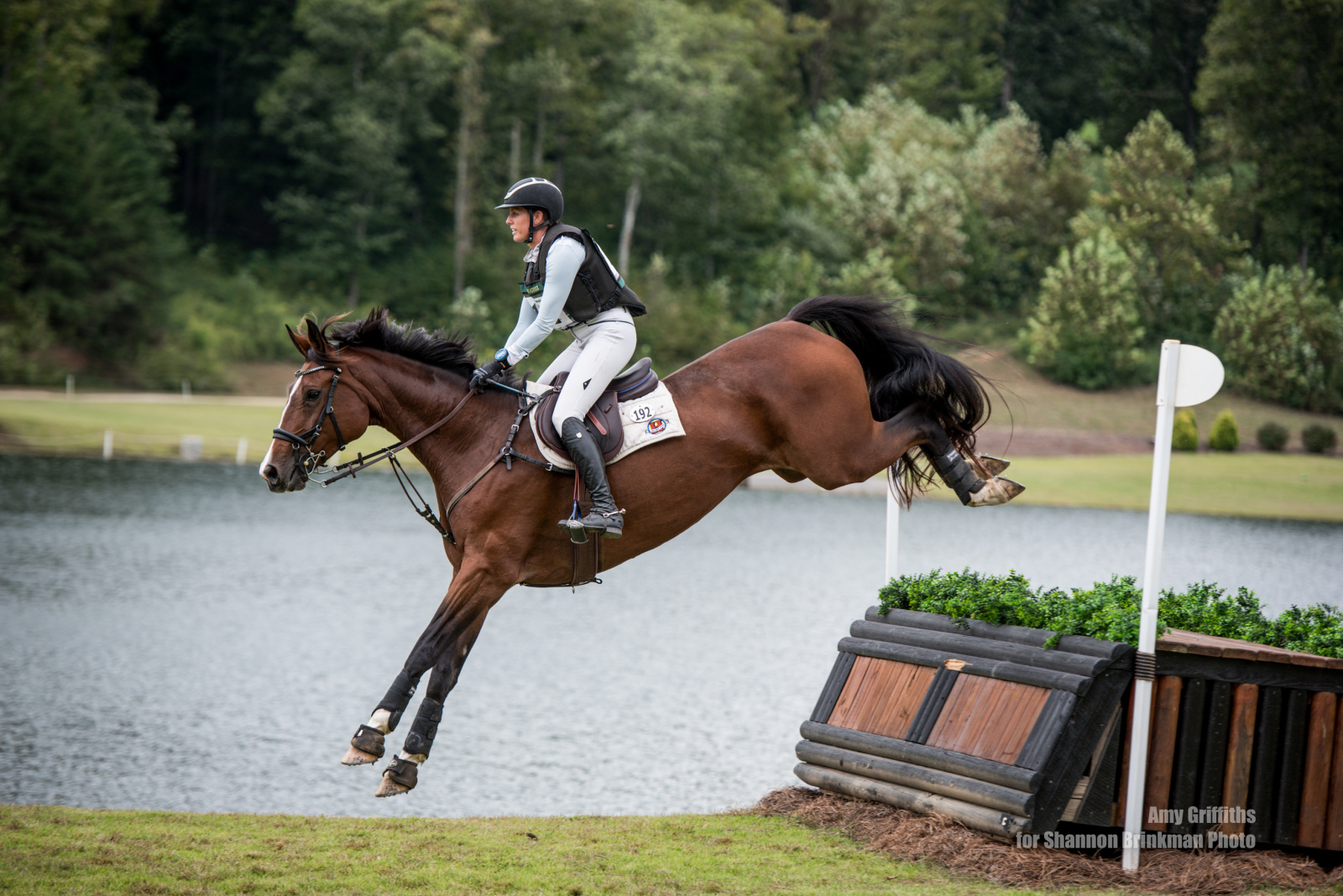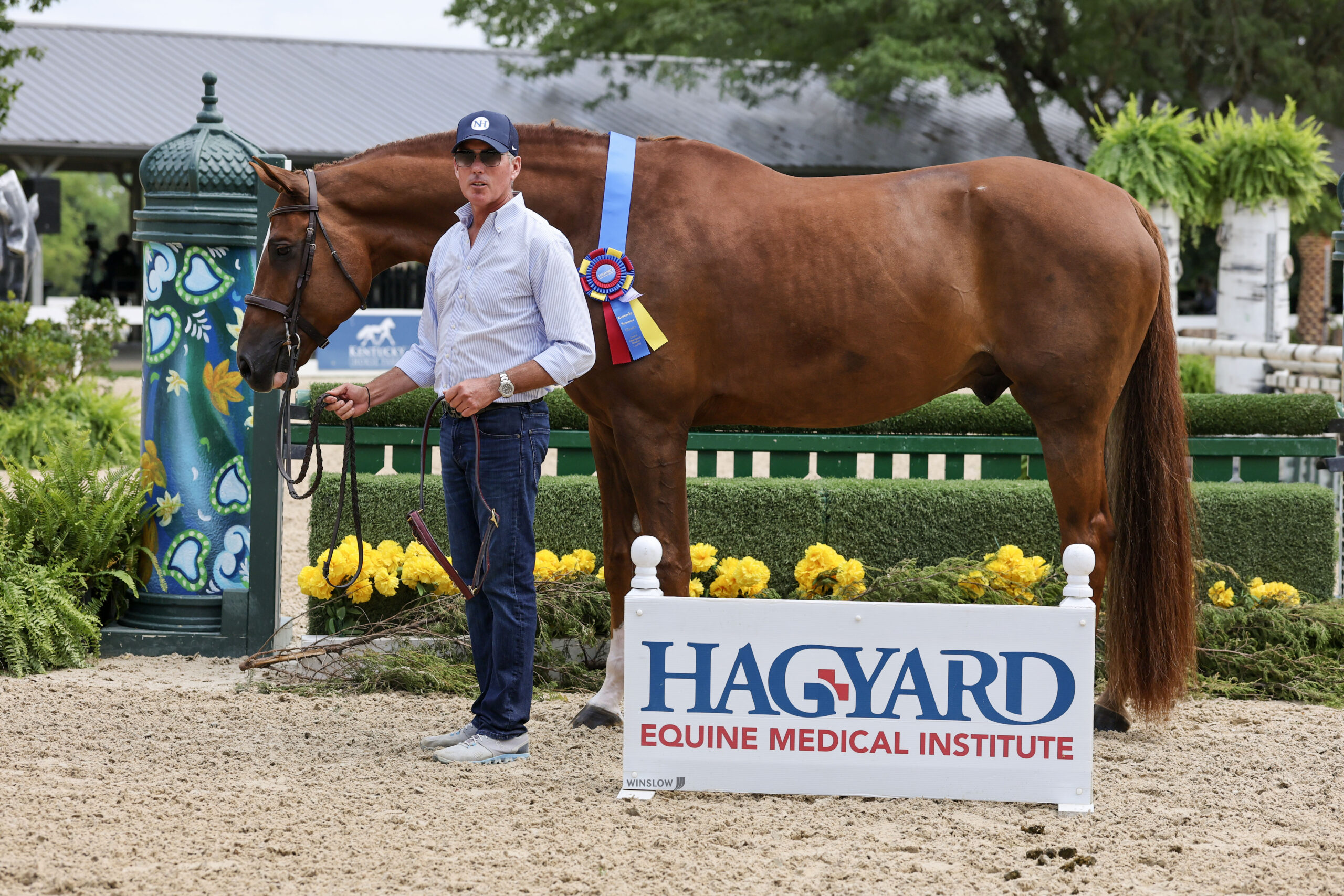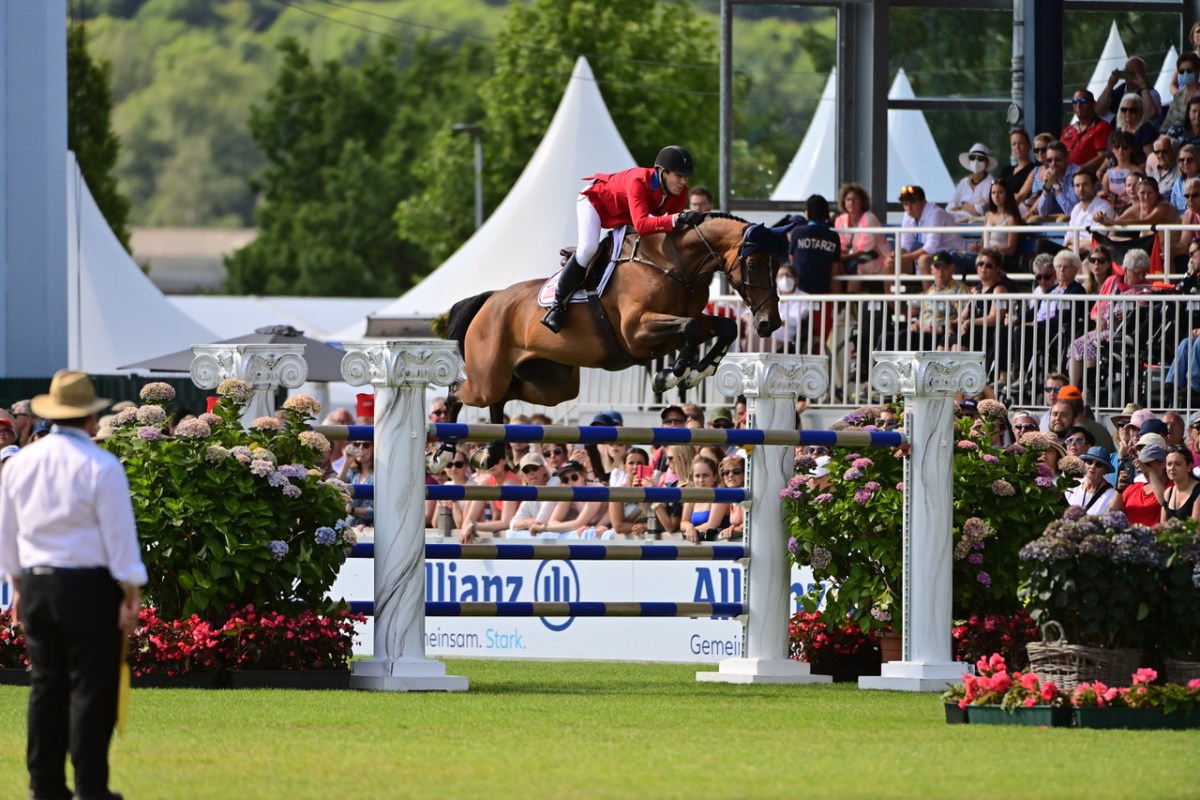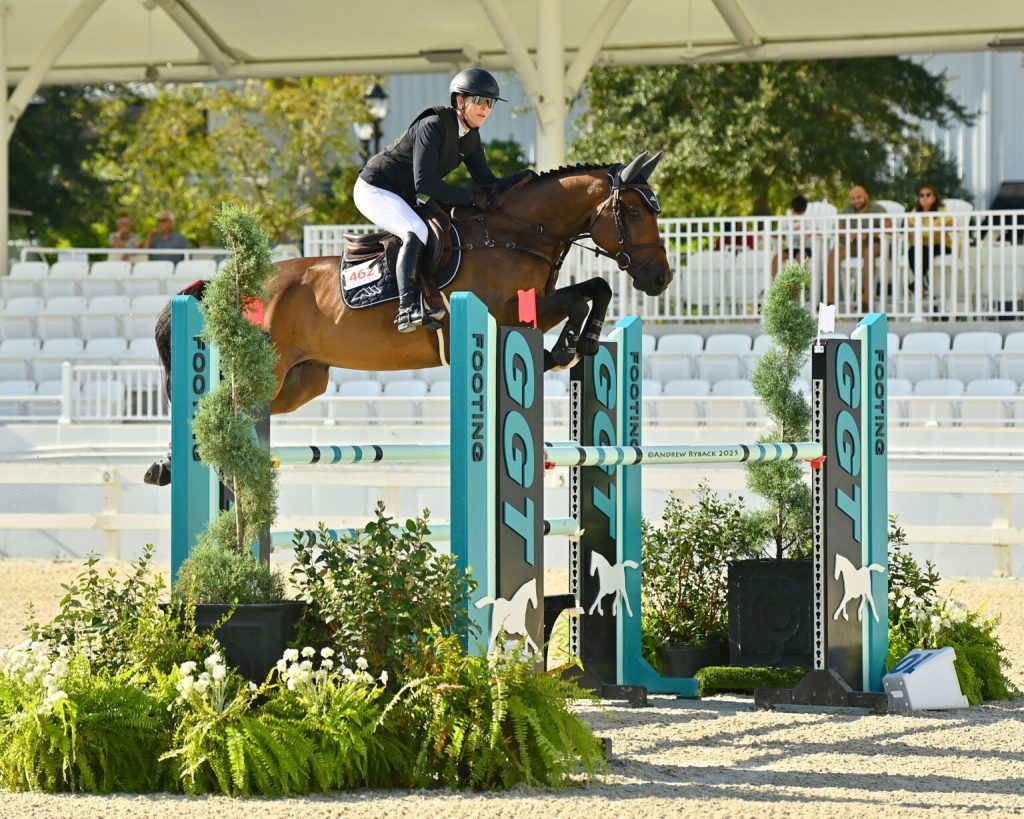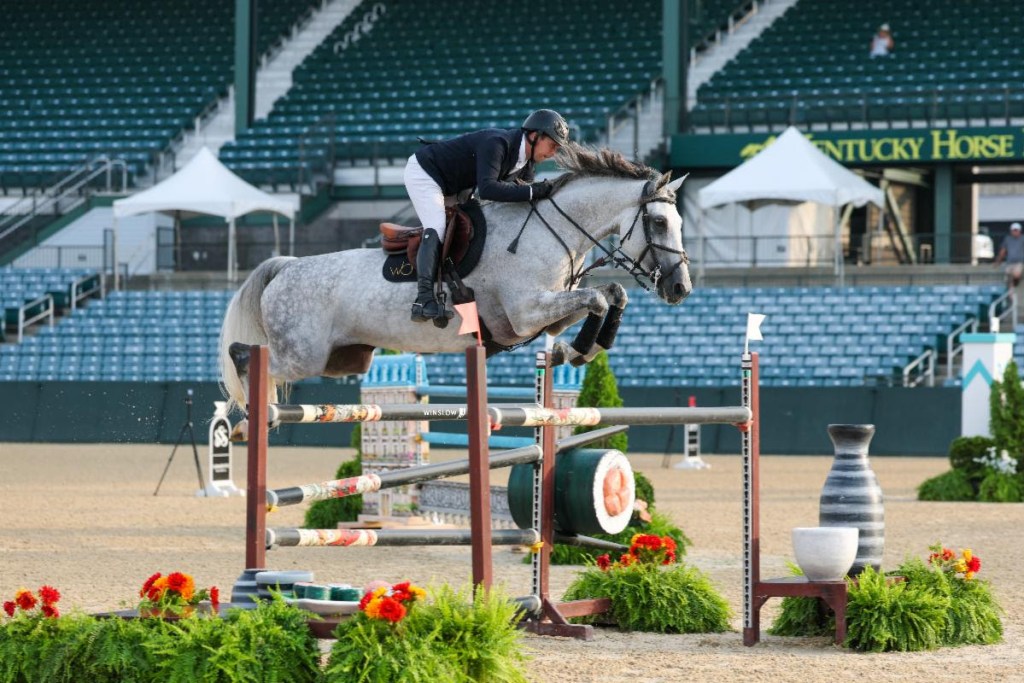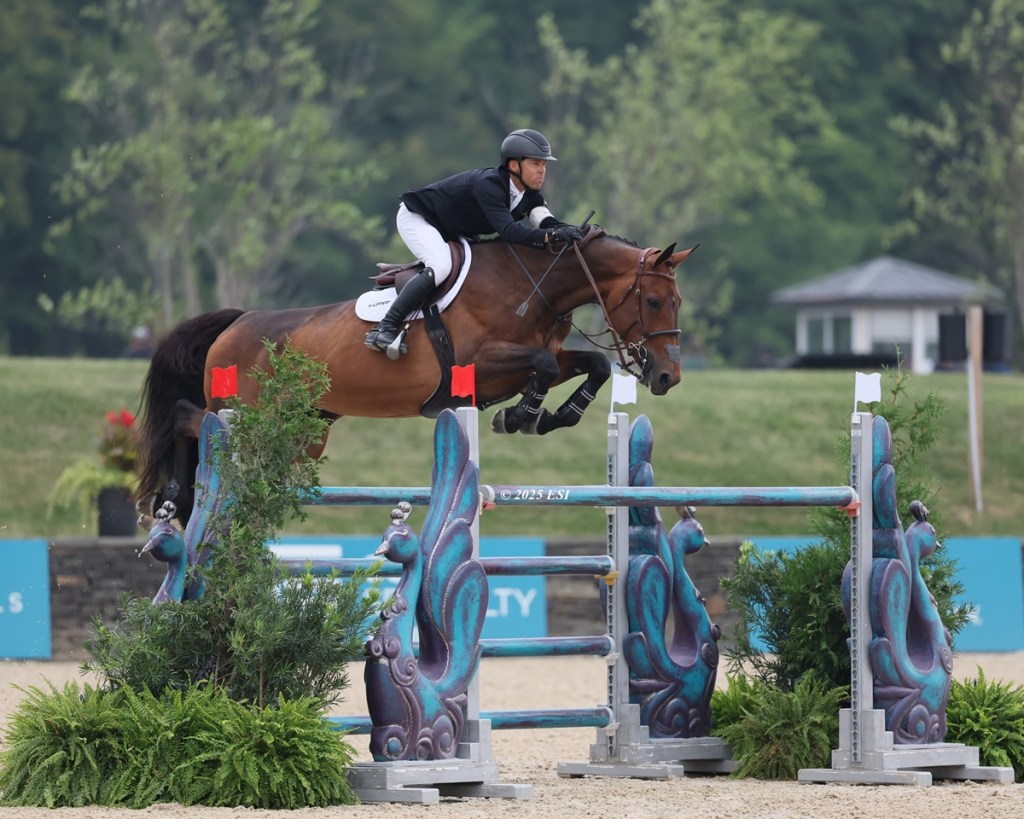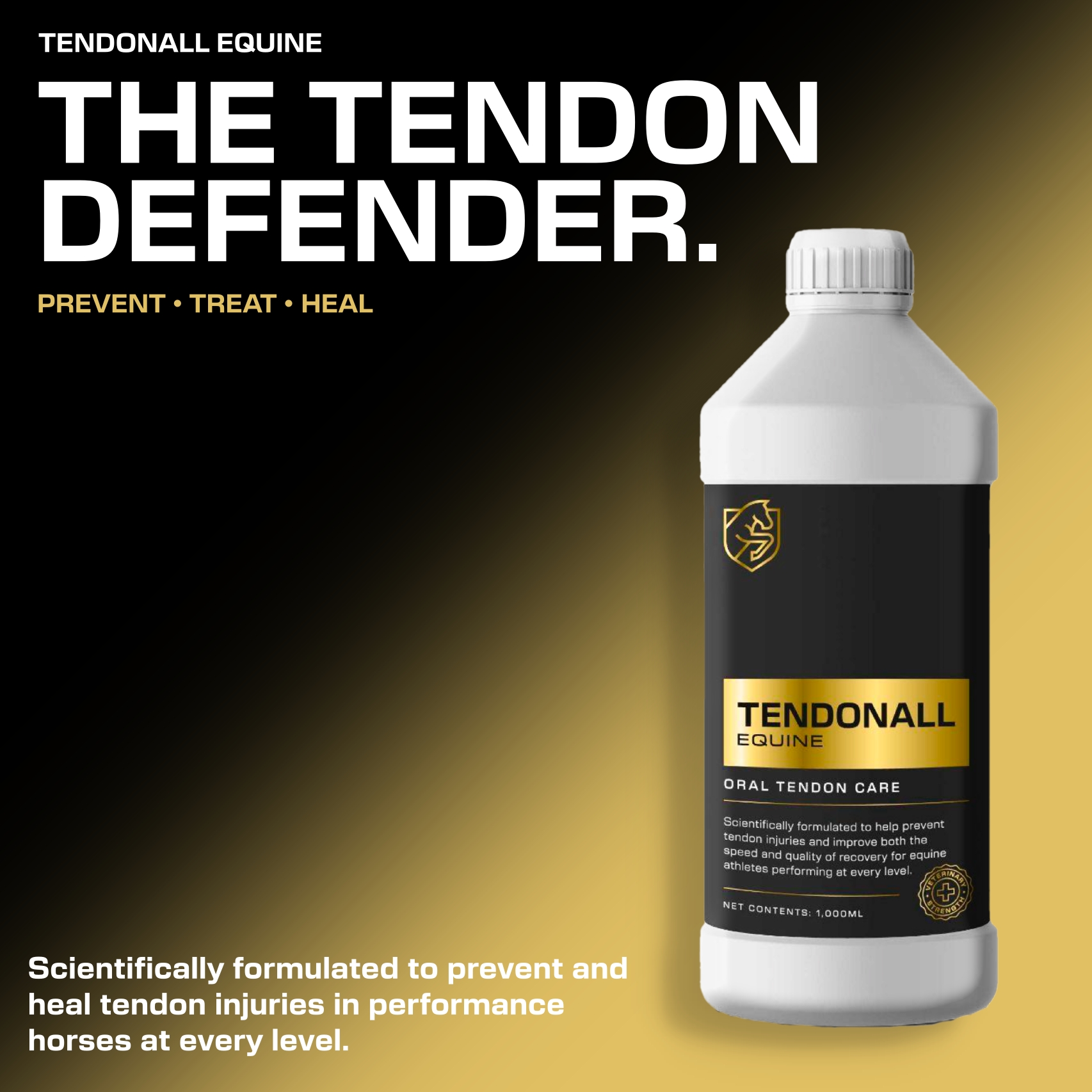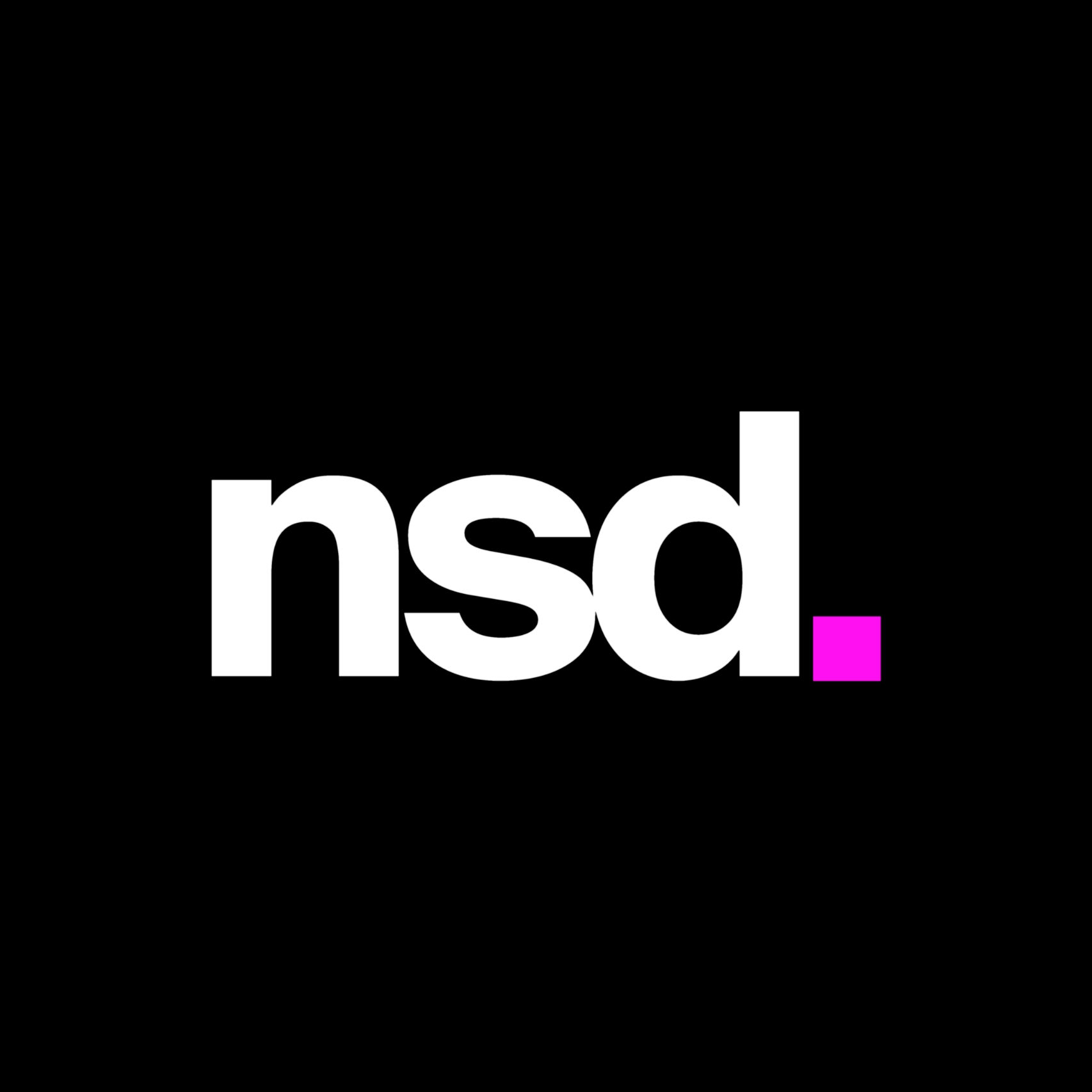In today’s world, it often feels like we’re viewing each other’s lives through the filter of a highlight reel. We see the perfect trips, the flawless jumps, and the moments polished enough for social media. What we rarely talk about is the pressure this creates for athletes on both sides of the screen.
Riders—whether professional or amateur—can feel an unspoken obligation to post content that makes them look successful and impressive. Meanwhile, as we scroll through these posts, it’s easy to fall into the trap of thinking the sport is all smooth sailing. This distorted perception can leave riders feeling as if they’re not succeeding all the time, they may not be cut out for the sport.
With Between the Ears, I aim to peel back the polished image of eventing and dive into the real, often unspoken challenges riders face. Through these conversations, we explore what it truly means to navigate the highs and lows of the sport—mentally, emotionally, and everything in between.
[To read more Between the Ears interviews, click here]
Photos by Shannon Brinkman Photography.
In this edition, I caught up with FEI event rider Elizabeth Stewart Swire. Known to many as Liz, she’s one of the countless eventers who got their start at True Prospect Farm with Phillip Dutton, taking a gap year to immerse herself in the sport. After working diligently through breaks and semesters during college, Liz made the bold decision to sell her horses and travel the world—until an unexpected offer to import a promising upper-level prospect completely flipped the script. Cue the mental tailspin.
What followed wasn’t the fairytale she imagined, but it is the kind of story that shapes a rider far beyond the competition ring. So saddle up and join me as we go Between the Ears for a conversation about resilience, mismatched expectations, and the lessons learned when the horse you get isn’t the one you planned for.
Can you tell me a little about your background and how you got into eventing?
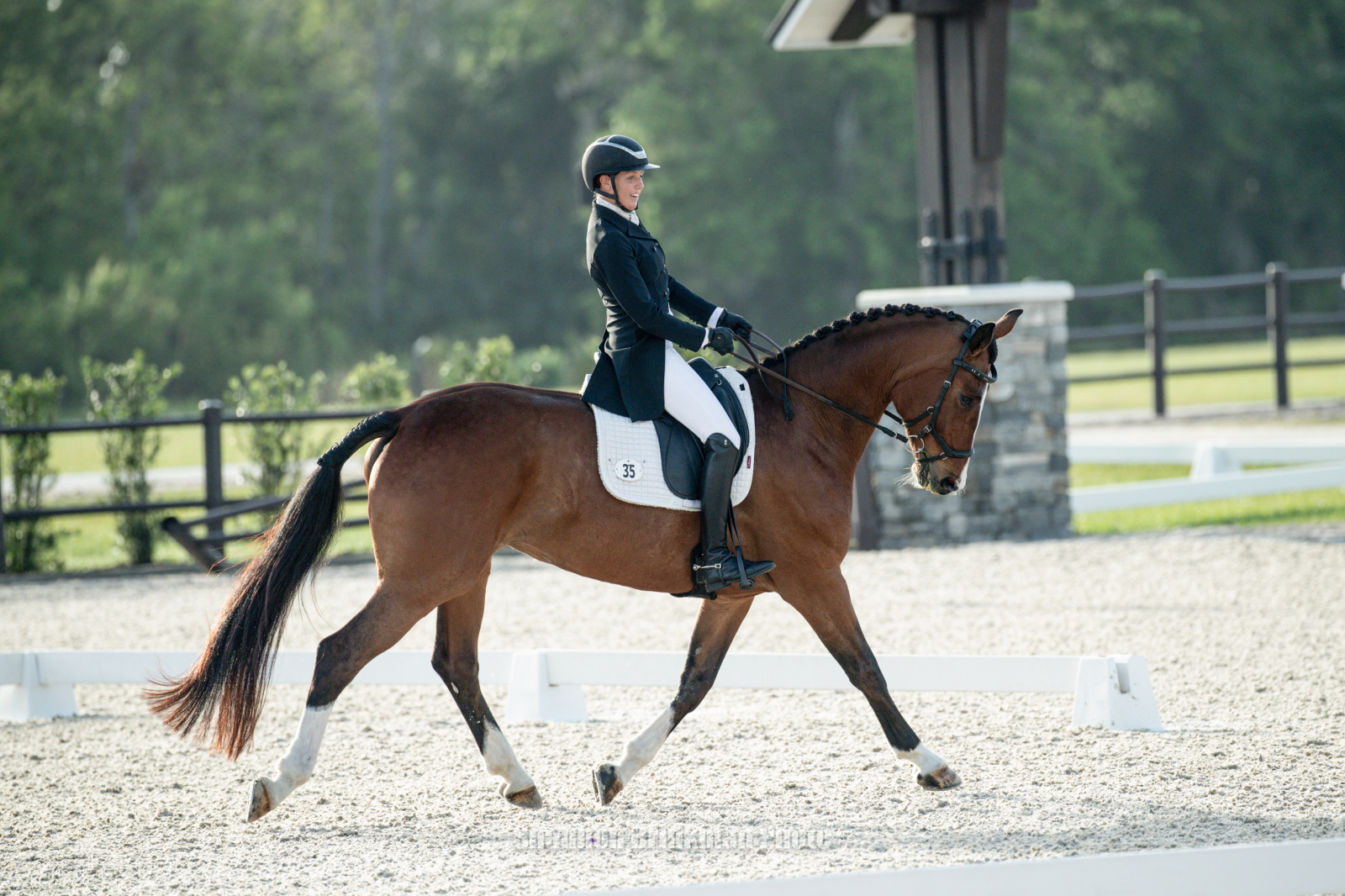
Photo by Shannon Brinkman Photography.
I grew up on a Standardbred breeding farm that my parents built from the ground up. It’s a big operation now foaling 200 mares this year alone. So horses were always a part of my life. When I was little, I’d go out in the fields and “whisper” to the horses. Luckily, Standardbreds are pretty forgiving, but my mom was worried I’d just hop on one someday, so she took me down the road to Robert Murphy’s hunter-jumper barn to officially start my riding career.
We bought a little pony we thought was 13, but he turned out to be closer to 25. I recently found some VHS tapes of me riding him around and realized that someone could have easily told me I wasn’t cut out for the hunter ring. Let’s just say both hands were not on the wheel at all times! When we went to a hunter derby that had jumps in the field, I thought ‘this is all I want to do’ and my mom told me I’d have to learn how to do dressage if I wanted to do more cross country, and that’s how I started eventing.
I spent my high school years nursing a horse that was supposed to take me up levels who came down with a bad case of EPM three months after we bought him so I ended up riding anything else I could—mostly off-the-track Thoroughbreds we got cheap. I graduated from high school in 2003, and two days later, I was at True Prospect.
I deferred college for a year, and that experience set the foundation for everything. I loved the process. Breaking young horses, learning from Phillip, and going to Aiken really solidified my love for the sport. Eventually, I went to college for human physical therapy but transferred into an equine therapy program for my last two years. During school breaks, I’d still go back to Phillip’s to work. After graduating, I started riding and rehabbing a few horses that people basically gave me. I found a small sale barn near Fair Hill, stayed close enough to Phillip for guidance, and started my own sales program.
Can you tell me about a decision that shaped your career?
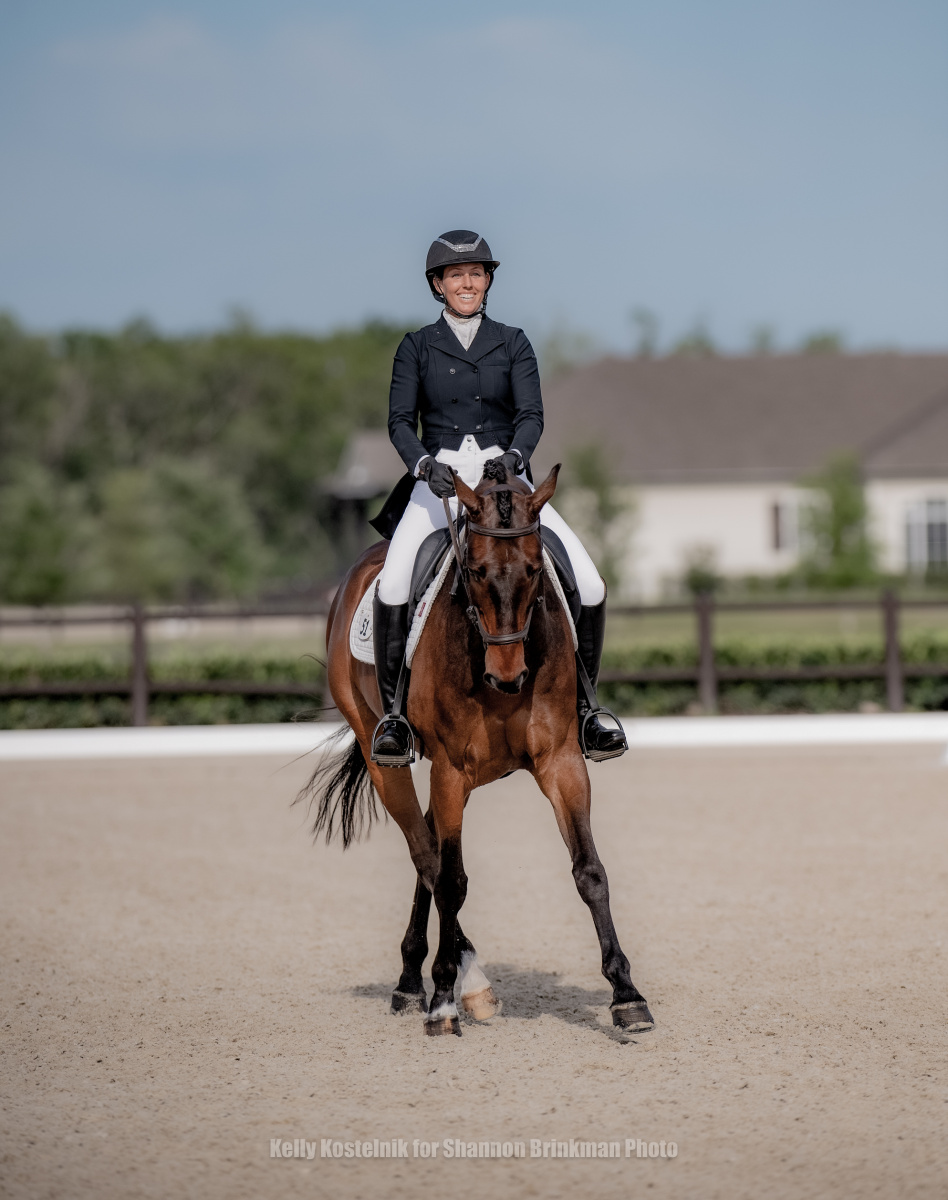
Photo by Shannon Brinkman Photography.
After going off on my own for a bit, I was feeling a bit burnt out and had this big plan: sell my horses, travel the world, and come back refreshed. But that fall, one of my parents’ clients offered to help me import a nice horse from overseas.
I had a full-on meltdown because it completely derailed my plan, but ultimately it was an opportunity I couldn’t pass up. Unfortunately, it didn’t go as I hoped. He was a total problem child—tense in dressage, tricky to ride, not at all what I expected. It completely shook my confidence.
When I realized that I had bit off more than I could chew with that horse, I did what I’ve always done: I went searching for help. Phillip suggested I come back into his program, and I did. I worked mornings at his barn, rode my own horses in the afternoon, and just kept chipping away.
At my first FEI with him, we tried going to dressage with no warm-up to see if that helped. I got a 91. No joke. Of course that was the old scoring method but I think the judge almost eliminated me; We just kept moving just forward enough in between the meltdowns. He was good on cross-country, a little unconventional in show jumping, but that dressage phase wrecked me.
Eventually, I took him to Florida to train with a dressage professional named Jules Anderson. She was totally outside-the-box in her training mentality, we rode the dressage horses up and down canals, using terrain, just figuring out how to get horses to enjoy the work again. That helped us both, honestly.
It wasn’t about being in the ring, drilling movements and tests. It was about learning and adapting. Eventually, I realized that this horse that was “supposed to be my five-star horse” wasn’t going to pan out, and I found him a new situation with my good friend Jennie Brannigan, who competed him a bit and was able to find a good fit for him with a young rider. I’m happy to say that at age 30, he’s still living happily retired at his forever home.
When you’re young and starting out your career, an experience like this is crushing. I kept thinking, “This was my shot,” and it felt like I had wasted it. But then, I bought an unbroken mare off the beaten path in Kentucky from the breeder that ended up taking me to the advanced level. The whole journey taught me a lot about expectations. Horses don’t know how much money you spent or what you’re hoping they’ll be. You have to meet them where they are and sometimes completely shift your own plan.
What advice would you give someone who feels mismatched with their horse or is losing confidence?
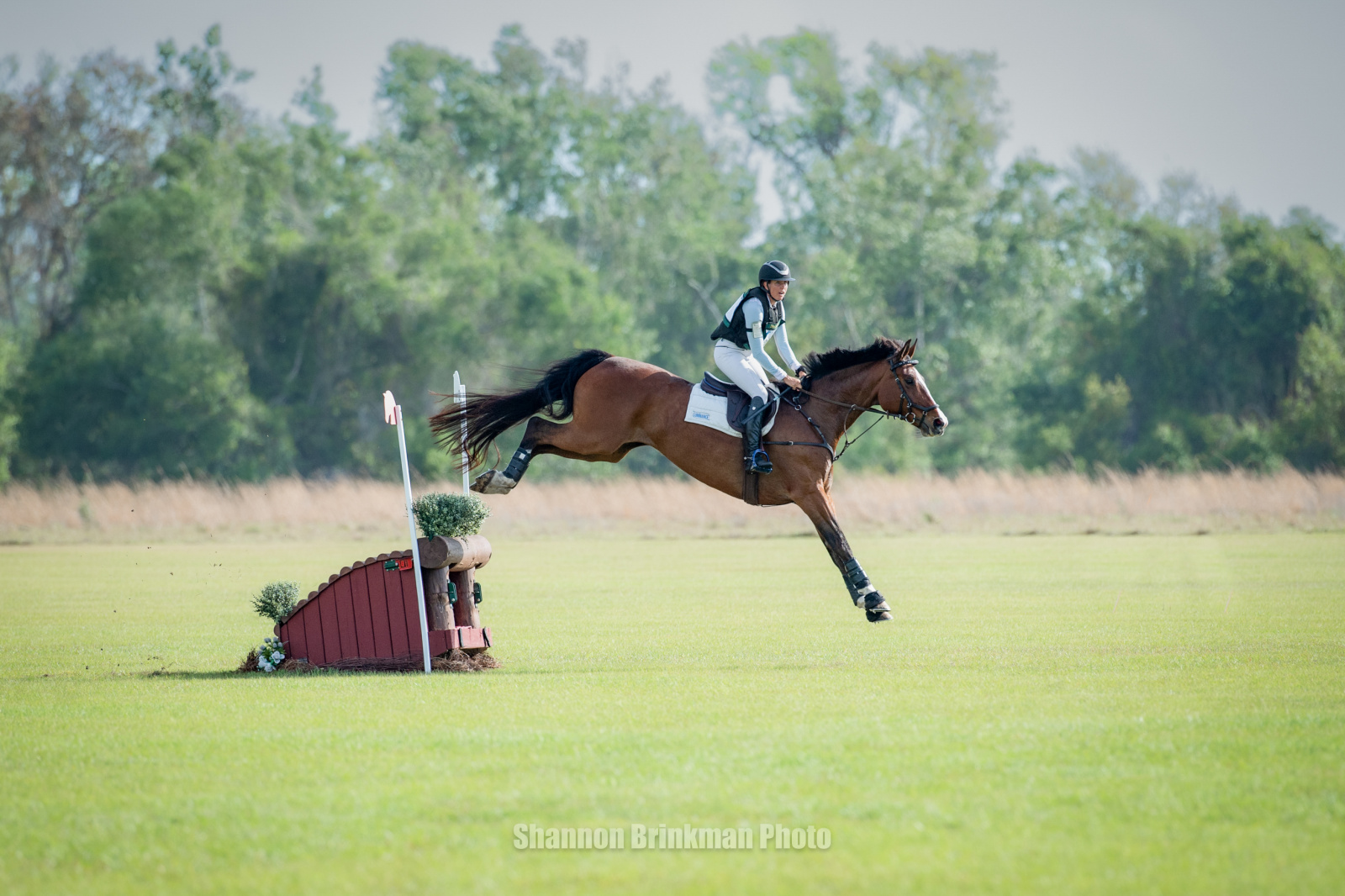
Photo by Shannon Brinkman Photography.
First, take your ego out of it. I literally told a trainer once, “Put me on a lunge line if you have to. I just want to get better.” Second, be honest with yourself. If you need to take a break from eventing and focus on dressage or show jumping for a while, do it. Build your skills and rebuild your confidence. Then reassess—maybe it’s not a training issue anymore. Maybe it’s just a mismatch, and that’s okay. Not every partnership is meant to last forever but you can learn a lot from any horse even if it’s not longterm.
And finally, don’t let fear stop you from asking for help. Someone at an event, someone not in your sport, a cowboy, even a polo player; I’ve learned amazing insights on training horses from unlikely sources and the worst someone can say is no. That doesn’t mean you give up—it just means you ask the next person.
What about helping others find horses—does your experience affect how you approach that?
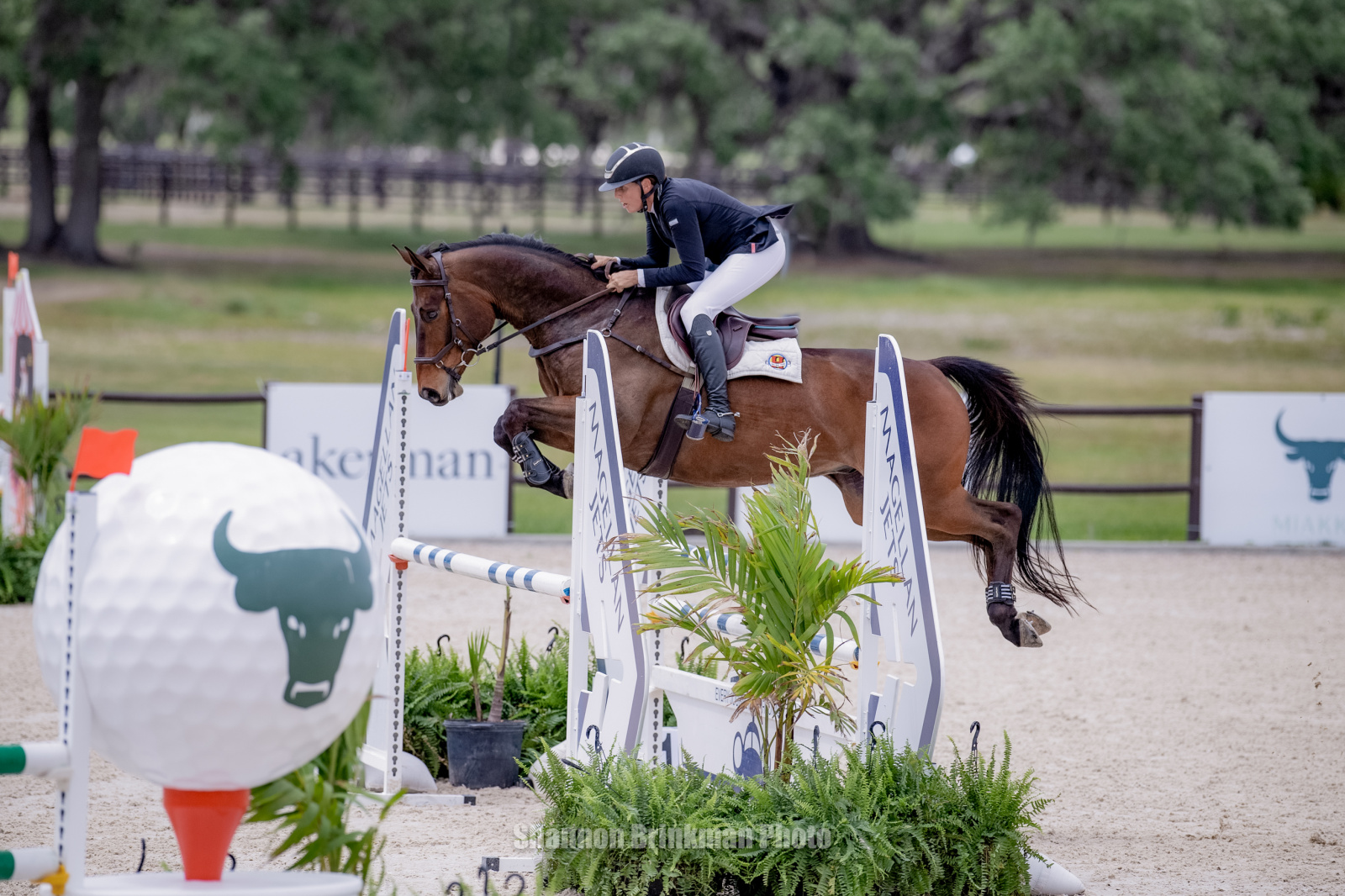
Photo by Shannon Brinkman Photography.
Absolutely. I have a lot of empathy for people searching for “the one.” Especially when you’re buying overseas, it’s easy to think you know what you want—but the truth is, you don’t know what you don’t know. I didn’t fully grasp how important the brain is in a horse until I had one that didn’t have it.
Now, when I help others find horses, I care a lot less about flashy movement or fancy bloodlines and a lot more about the fit. Does the horse want to do the job? Will the rider enjoy the process? That’s what really matters. I’m grateful to be using what I’ve learned in my own journey to guide others through my sales operation in Kentucky. I still have big goals for the development of the string of awesome competition horses I have now, but I’m doing it with more perspective on the different ways to the end goal — open to where the road leads next.
Liz’s story is a powerful reminder that the path to becoming a great rider isn’t paved with perfect rounds or glittering ribbons—it’s built through grit, grace, and the willingness to keep showing up, even when things don’t go as planned. Her journey illustrates just how much growth happens in the tough moments: when confidence is shaken, plans fall apart, and you’re forced to reimagine what success looks like. At the end of the day, it’s not about getting it right the first time—it’s about having the courage to keep learning, adjusting, and riding forward.

